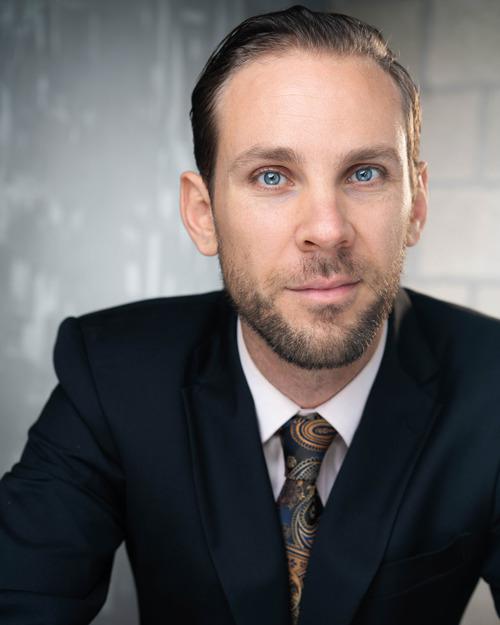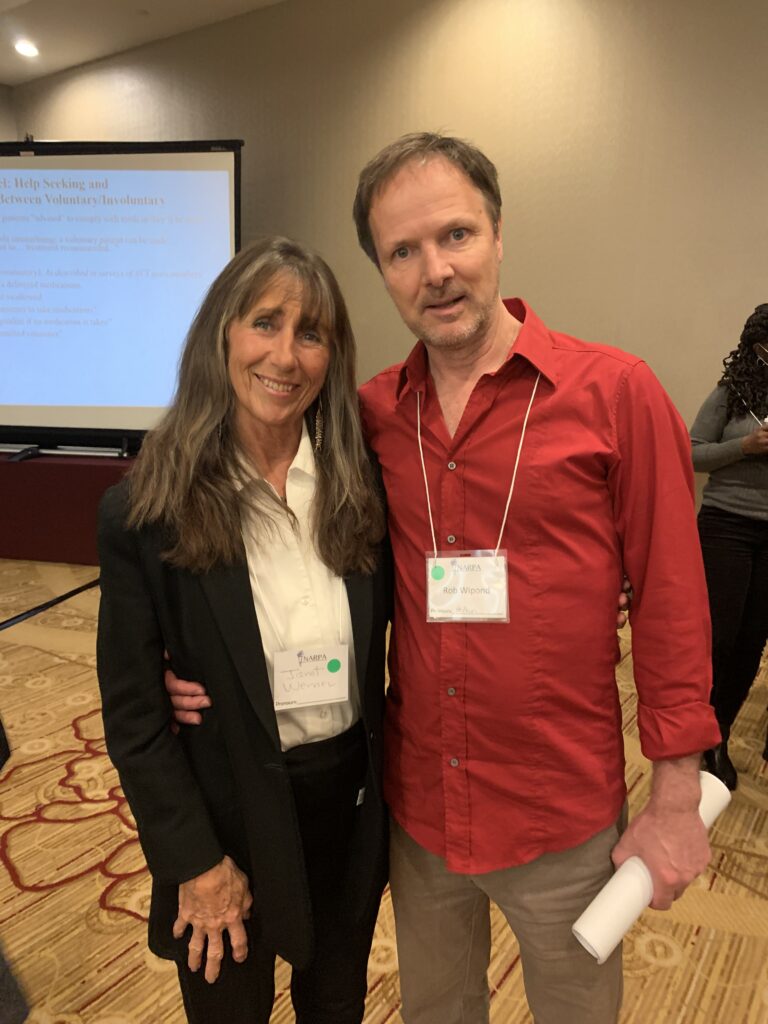I’m wondering why when people are involuntarily committed to a hospital, they are not read their rights in a similar way that when people are arrested, they are read their rights.
Where are patient rights posted in a psychiatric hospital?
Plaintiff Legal Team
African American bad ass female lead counsel (neutral to spiritual beliefs/forgot her roots).
Hispanic, straight shooter, comical in her brazen outbursts, strong cultural spiritual roots.
Young white male right out of law school. Naive yet consciously wise.

Alfre Woodward is our 1st choice to play Lead Counsel, Michele Banks Esq.

Deborah Louise Ortiz playing Louisa Gonzalez on plaintiff legal team.

Matt Marin Chapelli, Actor, playing Mark Feinman. Young twenty something white male fresh out of law school.
Defense Legal Team
Three white male lawyers defending the hospital. Conventional. Old school medical model beliefs. One is doubtful about defending the hospital behind the scenes. Add a female paralegal who is not treated with respect by the defense team (except for the one who is doubtful about defending the hospital)

Our desired list for 1 named actor on DEFENSE team.

Jon Bon Jovi. Singer, songwriter, guitarist, and actor. Jon Bon Jovi Soul Foundation. Engage through JBJ Soul Kitchen | JBJ Soul Kitchen

Ed Harris was born in Tenafly, New Jersey.

David Krumholtz introduced by a team member.
What lawsuits have been won in US/NJ re wrongful hospitalization & forced drugging?
Rennie v. Klein, 653 F.2d 836 | Casetext Search + Citator
United States Court of Appeals, Third Circuit Jul 9, 1981 653 F.2d 836 (3d Cir. 1981)
In Rennie v. Klein, 653 F.2d 836, 843-44 (3d Cir. 1981), remanded, 458 U.S. 1119, 102 S.Ct. 3506, 73 L.Ed.2d 1381 (1982), on remand, 720 F.2d 266 (3d Cir. 1983), we recognized that persons who have been involuntarily committed to a mental institution have a qualified right to refuse anti-psychotic medication.
In Rennie v. Klein, 653 F.2d 836, 849 (3d Cir. 1981) (en banc), this Court held that when state procedures facially complied with constitutional requirements and state officials were in good faith implementing them, additional procedures should not be ordered.
Rennie v. Klein, 462 F. Supp. 1131 (D.N.J. 1978), was a case heard in the United States District Court for the District of New Jersey in 1978 to decide whether an involuntarily committed mental patient has a constitutional right to refuse psychiatric medication. It was the first case to establish that such a patient has the right to refuse medication in the United States. (Rennie had persistent religious delusions, he thought he was Christ)
Right to Refuse Medication: Rennie v. Klein Case Summary : Mental Illness Policy Org
Summary: An involuntarily committed patient who has not been found incompetent, absent an emergency, has a qualified right to refuse psychotropic medication. New Jersey’s administrative policies, which provide for a second psychiatric opinion in the case of refusing patients, give adequate scope for the exercise of that right to satisfy constitutional requirements.
Legal Right to Refuse Medical Treatment in the USA (rbs2.com) 2022
Janet: Why is the right to refuse medical treatment in common medical situations legal and the right to refuse drugging & hospitalization in mental health situations different?
How do we present a fictionalized court case based on facts known in 2007 that offers the public the research-based information & dramatic personal drama that reduces & STOPS the barbaric practices of forced hospitalization, forced drugging, misdiagnosis, stigmatizing, shaming, loss of life and loss of quality of life while presenting alternatives & solutions for better outcomes?
How do we get the truth out into mainstream news now while we are making the movie? Our intent is to present the 2022 & 2023 research into mainstream news as a public conversation while making the movie about where we were in 2007.
Robert Whitaker, President, Mad in America. This video shows why we want to partner with Robert & use his brilliance to add to the legal testimony especially on the chemical imbalance myth. Staff Page – Mad In America

See Bob Whitaker’s article
Psychiatry, Fraud, and the Case for a Class-Action Lawsuit – Mad In America
“…the American Psychiatric Association, in concert with pharmaceutical companies, promoted the low-serotonin theory to the public long after the low-serotonin theory had been found to be without merit. Scientific advisory councils populated by professors of psychiatry at prestigious medical schools also signed off on such pronouncements by non-profit advocacy associations, and in that manner, share culpability for telling this “falsehood” to the public.”
“That fraudulent story-telling worked, in the sense of deluding the public. As Moncrieff and colleagues noted, surveys in recent years found that 85% to 90% of the public believed that low serotonin was the cause of depression, and that antidepressants helped fix that imbalance.”
“There you have the basis for a class action lawsuit: the psychiatric community long ago knew that the low-serotonin story of depression hadn’t panned out, yet the American Psychiatric Association, pharmaceutical companies, and scientific advisory councils told the public otherwise, and this created a societal belief in that false story. The surveys prove that many millions of patients acted upon that falsehood and incorporated it into their sense of self.”

Rob Wipond at NARPA Oct. 28, 2022

Rob Wipond, Author, Your Consent is Not Required – Rob Wipond
Rob’s research is extremely valuable to include in our court cases.
Legal script to be developed with a Law Firm partner. these are just notes from where we left off.
Plaintiff lawyer opening statement
Her medical report said: “cognition was intact” which is accurate. Her medical report also said, “She had delusions of grandiosity and felt that she was directly in contact with Wall Street and Washington DC and had a big business.” Her medical report said, “She had grandiose delusions of being an entrepreneur.” We will prove beyond any UNREASONABLE doubt that this medical report is inaccurate and highly prejudicial, and that this woman was falsely accused of a crime she did not commit. She was labeled, stigmatized and her human rights to freedom were removed by the State. She did not have her day in hospital court in 2005 as required by law but she is having her day in court now… not just for herself but for all of the innocent victims who had their rights taken away from them with forced medication and institutionalized against their will.
TO do: document Jim Gottstein’s testimony for court script.
What if outcomes of the court case include:
- informing the public on mainstream news about the chemical imbalance myth?
- pharmaceutical companies must include the chemical imbalance truth on drug commercials.
- hospitals have X years to advance treatment/protocols on psych wards to include alternative medicines, spiritual/cultural competency, etc. + ER intake interview must include a spiritual assessment (Dr. David Lukoff)
- American Psychiatric Association & accreditation of the profession must be accountable for training in medical schools & ongoing CEU’s to include alternative medicine & spiritual/cultural competency including skills in respect for the patient’s voice, co-creating the therapeutic process?
Consider in follow up court cases: Expanding this to a class action lawsuit with thousands of testimonies from experiencers of spiritual emergency who were hospitalized or marginalized by the mental health and medical community since 1994.
Or end a season walking out of the courtroom having won a settlement with hundreds of people with Me Too signs re …
What are the differences in a civil V criminal trial?
In a criminal trial, a guilty verdict requires that the members of the jury believe beyond a reasonable doubt that the accused committed the crime in question. By contrast, in a civil trial, the accused can be liable with a simple preponderance of the evidence, meaning the jury feels it is more likely than not that the accused is responsible.
This case is not just about Anna Biltmore who at 25 was institutionalized and forced on drugs…and then again at 50….
It is about thousands of Anna Biltmore’s around the United States of America and around the globe who were and still are. It is also about you and me. It is a well-known fact that 1 in 4 of us either have a significant mental health challenge or know of one in our family/friends network. It is about the growing statistics on Americans/global citizens experiencing mystical experiences and being misdiagnosed…derailed from a natural process of personal/psychological/spiritual growth and transformation.
NOTES from conversations:
Is the lawsuit against the psychiatric hospital or NJ STATE for signing the orders to keep Anna in the hospital for 11 days against her will and force drugs? NJ STATE signed the orders under false information in the medical report & was also prejudicial given a previous misdiagnosis of Bipolar 25 years prior. Did the hospital operate on “Heads in beds”? Did the judge & doctors ignore the research and not believe Anna’s request to use the DSM v code: Spiritual and Religious Problems on purpose or by ignorance? Why did Anna not have a day in hospital court? Why isn’t her voice in the medical report records? Why did the hospital or State forgive Anna’s $13,000 bill without a fight and after only one letter?
Is this a civil or criminal case? Is this court held in NJ State court or is this a Supreme Court issue?
What if our lawsuit is filed against the Federal Communications Commission (FCC) for allowing pharma company commercials to promote the chemical imbalance myth on drug commercials? What if we are requesting the ending of pharma psychotropic drug commercials in a similar way that cigarette commercials were banned? What if the court case influenced a bill for equal time on broadcast content on academic research in regard to alternative medicine, spiritual side of mental health, & the myth of chemical imbalance?
The Museum of Broadcast History calls the “equal time” rule “the closest thing in broadcast content regulation to the ‘golden rule’.” This provision of the 1934 Communications Act (section 315) “requires radio and television stations and cable systems which originate their own programming to treat legally qualified political candidates equally when it comes to selling or giving away air time.”
Differentiation between psychotic mental illness & spiritually transformative experiences. STE. Is there really a differentiation?
Prognosis of positive outcome for STE when protocol is followed.
Costs for hospitalizations that can be prevented.
Big pharma court cases that lead to other court cases & demonstrate the extent of research & education & coordination required: DSM Code V62:89 How is this different from state to state in US? What is different in China, Latin America, UK, Australia?
Differentiation by culture/religion:
- 50% of Catholic Latina believe in communication with saints & spirits.
Questions that will come up later in court
Lawsuits involving pharma and drugs.
2019 J&J Faces $100,000 More Damage Claims After Taking $8 Billion Hit for wrongfully pushing doctors to prescribe the anti-psychotic drug Risperdal. Janet Werner was forced to take Risperdal in 2005
Janet required to take Wellbutrin in 1979 after hospitalization in addition to Lithium & I think a cocktail of drugs inside the hospital.https://en.wikipedia.org/wiki/List_of_largest_pharmaceutical_settlements
2020. OxyContin maker to plead guilty to federal criminal charges, pay $8 billion, and will close the company. 2000 lawsuits filed by state & federal government.
